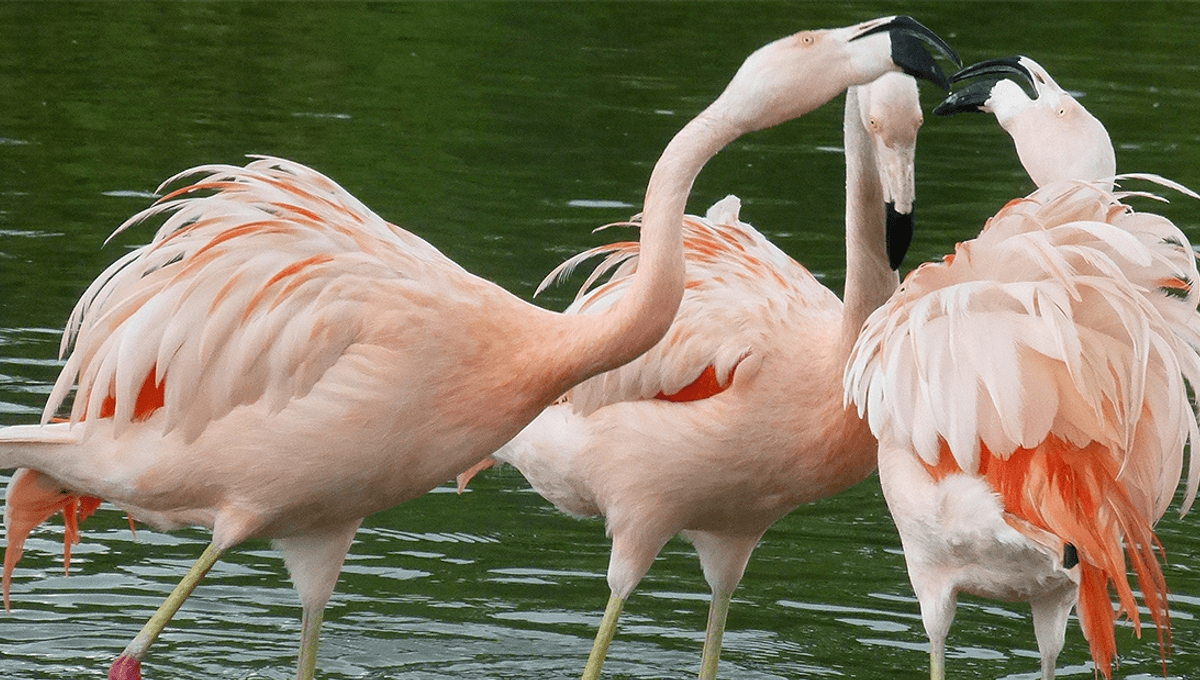
Flamingos have distinct personalities with birds that display bolder, more aggressive personality types more likely to form their own friendship groups with flamingos with similar attributes. More submissive flamingos are also more likely to be friends with other submissive flamingos a new study has found.
By looking at two different flocks of flamingos in captivity at the Wildfowl & Wetlands Trust (WWT), Slimbridge, UK, the team found that these highly social birds had typical friends that were like-minded in nature. While previous research has discovered that color is linked to aggressive tendencies in flamingos and that the birds are able to form friendships, this new study has taken it one step further.
“Our previous research has shown that individual flamingos have particular ‘friends’ within the flock,” said Dr Paul Rose, from WWT and Exeter’s Centre for Research in Animal Behaviour in a statement. “In this study, we wanted to find out whether individual character traits explain why these friendships form.”
First, the team measured consistent individual differences in the flamingo’s personalities such as willingness to explore and how aggressive they are. The team also explored how much time the flamingos spend with one another and found that individuals spend 6.6 percent of their time with another flamingo within the flock and were actively associating with their flamingo pals.
In the flock of Caribbean flamingos, (Phoenicopterus ruber) individuals with higher levels of aggressive, exploratory, and submissive behavior had a higher number of friends and stronger connections with those friends. They also took part in more fights and were more likely to help their friends when they became threatened.
“The various different personality groups provide social help to their members, for example by supporting each other in the many squabbles that take place in flamingo flocks,” said Fionnuala McCully, now at the University of Liverpool, who collected data for the study during an MSc Animal Behaviour course at the University of Exeter.
In Caribbean flamingos, it was found that birds with certain personalities had a specific role within the group but this was not found to be the case in the Chilean flock (Phoenicopterus chilensis). Instead, the birds losing the fights were more likely to be older birds suggesting that age played a different role in each flock.
“Like humans, flamingos appear to carve out different roles in society based on their personality,” continued McCully.
The team suggests that their findings should be used to influence welfare decisions and, where possible, aim to keep established relationships in place when moving birds between different captive settings. “It is clear from this research that a flamingo’s social life is much more complicated than we first realised,” said Dr Rose.
The paper is published in Scientific Reports.
Source Link: You Can't Sit With Us: Flamingos Form Cliques Within Their Flocks